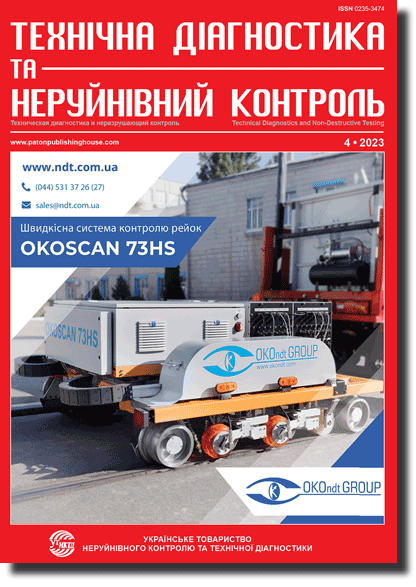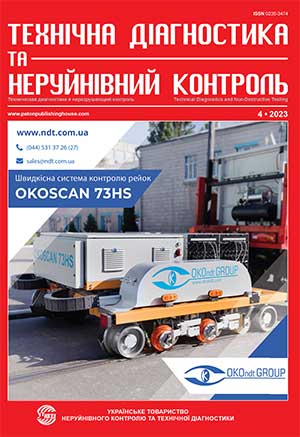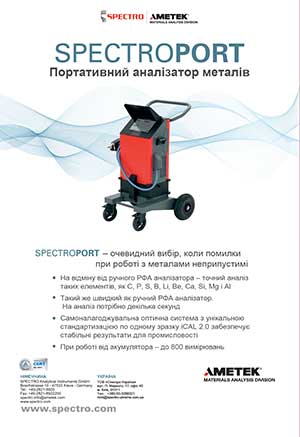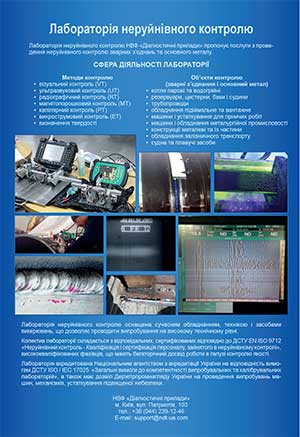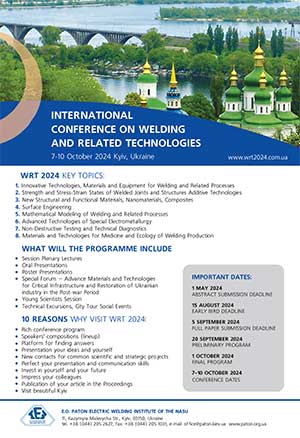| 2023 №04 (02) |
DOI of Article 10.37434/tdnk2023.04.03 |
2023 №04 (04) |
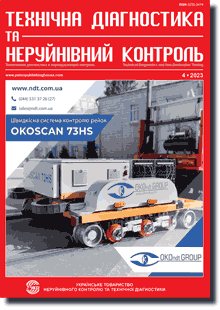
"Tekhnichna Diahnostyka ta Neruinivnyi Kontrol" (Technical Diagnostics and Non-Destructive Testing) #4, 2023, pp. 20-25
Formation of edge waves from semi-translucent cracks
V.P. Dyadin, Ye.O. Davydov
E.O. Paton Electric Welding Institute of the NAS of Ukraine 11 Kazymyr Malevych Str., 03150, Kyiv, Ukraine. E-mail: office@paton.kiev.uaThe paper deals with the features of diffraction wave formation on the edges of cracks, where the inner cavity is filled with liquid. The urgency of such research is dictated by practice of TOFD method application. The surface of industrial facilities quite often is in contact with different liquids. Such facilities include, for instance, practically all the petrochemical and thermal power equipment. Part of the equipment in the working cycle is lubricated with oil, or just operates under the conditions of precipitation, or when surface wetting cannot be avoided. Therefore, the question of the influence of liquid on formation of edge waves from liquid-filled cracks is of a certain interest. 6 Ref., 13 Fig.
Keywords: edge wave, wave diffraction, TOFD method, crack
Received 22.09.2023
References
1. Malyuzhinets, G.D. (1960) Wave diffraction. B: Physical encyclopedic vocabulary. Ed. by B.A. Vvedenskij, Vol. 1. Moscow, Sovetskaya Entsiklopediya [in Russian].2. (1981) Seismic prospecting. Refer. book of geophysicist. Ed. by I.I. Gurvich, V.P. Nomokonova. Moscow, Nedra [in Russian].
3. ISO 10863:2020 Non-destructive testing of welds – Ultrasonic testing – Use of time-of-flight diffraction technique (TOFD).
4. DSTU EN ISO 15626:2019 Non-destructive testing technique. Time-of-flight diffraction (TOFD). Acceptance levels (EN ISO 15626:2018, IDT; ISO 15626:2018, IDT).
5. ASME Sections VIII, Chapter II, p. 7.5.5.2.
6. Grinchenko, V.T., Vovk, I.V., Matsypura, V.T. (2007) Fundamentals of acoustics. Kyiv, Naukova Dumka [in Ukrainian].
Advertising in this issue:
The cost of subscription/purchase order journals or individual articles
| Journal/Currency | Annual Set | 1 issue printed |
1 issue |
one article |
| TPWJ/USD | 384 $ | 32 $ | 26 $ | 13 $ |
| TPWJ/EUR | 348 € | 29 € | 24 € | 12 € |
| TPWJ/UAH | 7200 UAH | 600 UAH | 600 UAH | 280 UAH |
| AS/UAH | 1800 UAH | 300 UAH | 300 UAH | 150 UAH |
| AS/USD | 192 $ | 32 $ | 26 $ | 13 $ |
| AS/EUR | 180 € | 30 € | 25 € | 12 € |
| SEM/UAH | 1200 UAH | 300 UAH | 300 UAH | 150 UAH |
| SEM/USD | 128 $ | 32 $ | 26 $ | 13 $ |
| SEM/EUR | 120 € | 30 € | 25 € | 12 € |
| TDNK/UAH | 1200 UAH | 300 UAH | 300 UAH | 150 UAH |
| TDNK/USD | 128 $ | 32 $ | 26 $ | 13 $ |
| TDNK/EUR | 120 € | 30 € | 25 € | 15 € |
AS = «Automatic Welding» - 6 issues per year;
TPWJ = «PATON WELDING JOURNAL» - 12 issues per year;
SEM = «Electrometallurgy Today» - 4 issues per year;
TDNK = «Technical Diagnostics and Non-Destructive Testing» - 4 issues per year.




